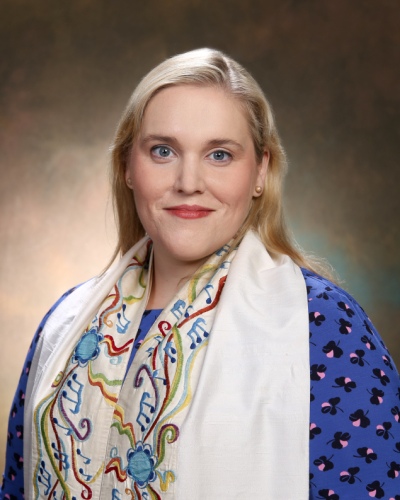In this and last week’s Torah portion, (yes! The same Torah portion two weeks in a row! Read more about that here) we have the difficult section where Nadav and Avihu, Aaron’s sons, are put to death for bringing an aish zarah – a foreign or strange fire – into their worship of God.
There are many, many commentaries that interpret what really was Nadav and Avihu’s sin. Was it simply an offering that was not commanded? Was it an offering brought in an improper manner? If so, was the impropriety in their actions or in their intentions? Were they frivolous? Did they not fully appreciate the gravity and sanctity of coming in to God’s presence? The Torah trope in this section is also particularly acrobatic. The Masorites, who codified the cantillation marks, made certain that all who would read and hear this Torah portion chanted would take heed of the crime and consequences of Nadav and Avihu’s aish zarah.
I’ve spent lots of time wondering about Nadav and Avihu over the years. Sometimes, I imagine them as teenagers. 16-year-old boys playing at being adults, struggling to find their own space and their own voice, unique from their prominent father. Were they so different from a teen with unfettered access to all of the risks of our modern world: cars, internet, drugs, alcohol, sex, video games, whatever the potential vehicle for the derailment of one’s life. Were they just traversing the boundaries between safe and dangerous, exploration and ruin? That’s what most teenagers do. Except, Nadav and Avihu were not among the lucky ones who resiliently bounce back from a foray into experimentation.
Since Nadav and Avihu lost their lives in worship, and worship and music are basically synonymous for me, I often imagine them in their room listening to some hideous music. Were they the teenagers whose death metal or explicit or misogynist hip hop, made their parents’ hair stand on end? Are they rocking out to some kind of pop against their parents’ 90s-bred, Seattle-born alternative tunes? For me, Nadav and Avihu could quickly become history’s first hippies, whose Greatest Generation parents could never quite understand.
Parents and children have struggled to understand one another’s music for generations. Even cool parents. Even cool kids. Now that my children are developing their own, clear preferences for music, I see how much joy I will derive when we love the same thing and how quick I am to tolerate – and only barely – the stuff that’s just not for me. But I love them, so if they want to listen to Frozen for the THOUSANDTH time, I might be able to muster the ability to allow it on in the background and let my mind go elsewhere. (An aside, I was at the dentist a few weeks ago waiting for the doctor in the exam room and what should come on across the hall – Let It Go! Sigh. No escape.)
But, that impetus to tolerate and not to accept is one that concerns me. Tolerance is dangerous. Tolerance is only slightly veiled disdain. There is a scale of acceptance – from baseless hatred to ignorance to blind indifference to tolerance to appreciation, acceptance, and love. In my moments of Frozen fury, rather than allowing my blood to boil beneath, I instead appreciate my children’s exuberance, accept their desire to listen to Do You Want to Build a Snowman, and love them for who they are.
How often do you think this happens for people in the synagogue when it comes to music? How many people tell me that they HATE x, y, or z setting of whatever prayer or text? And then in the next moment, someone else approaches and shares their deep and profound sense of LOVE and CONNECTION to the very same setting of the very same prayer or text.
Planning worship for a large community is a lot like being a referee. Everyone has needs, everyone has desires, and everyone has preferences based on his or her own profound experience of Creation. And the clergy are charged with balancing what is desired with tradition and what might come to be.
There is a saying among clergy that “one generation’s kavannah is the next generation’s keva.” What one generation finds to be deeply spiritual and inspirational, is in fact fixed, expected, and even ordinary for the next generation. As a people, our prayer practices and the way we offer public worship is in constant dialogue with those who came before us, our own deep desires and needs, and what we imagine might be just around the corner. For me, it is all possible. But, we shall proceed with great caution and care. We are talking about the way we come in to God’s presence, they way we come close to the author of all Creation. Let the fire we offer always be beautiful, meaningful, honest, and sensitive. And, when we go out of bounds, may we feel it in our gut and retreat from the precipice, not like Nadav and Avihu.




